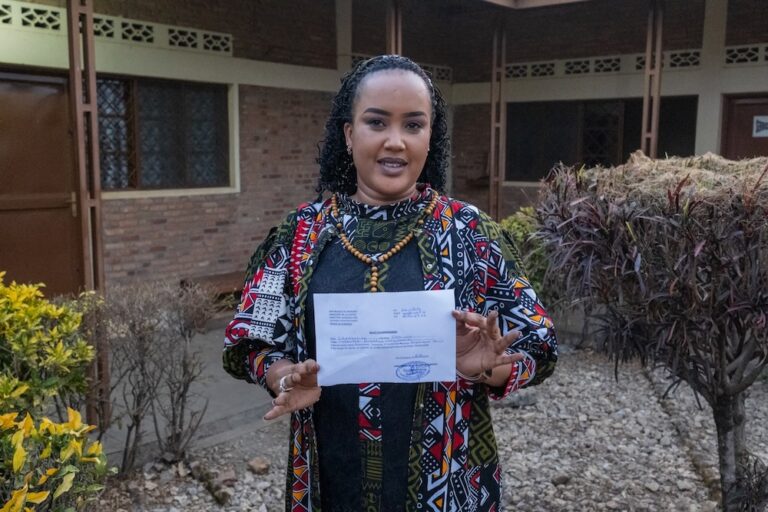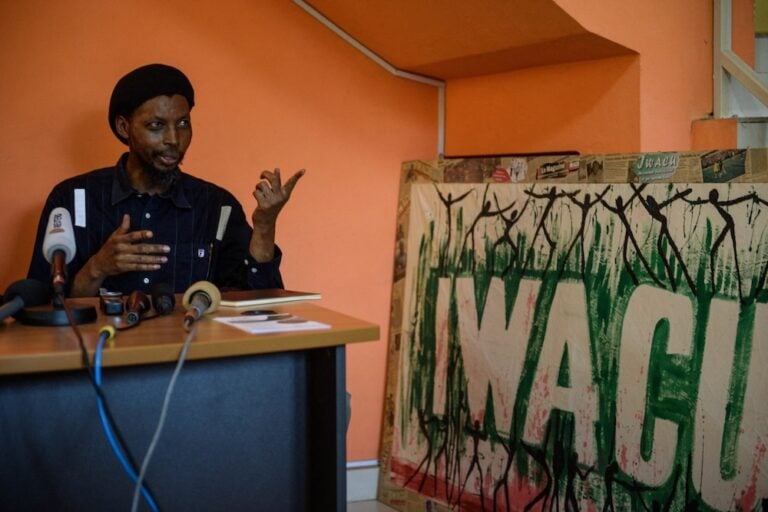(RSF/IFEX) – RSF is concerned about the deteriorating press freedom situation in Burundi. “The authorities have taken several steps in the past month that seriously threaten independent media. The government has even started to closely monitor the Internet. Such measures are increasingly beginning to resemble harassment,” stated RSF Secretary-General Robert Ménard. “Burundi’s radio stations are […]
(RSF/IFEX) – RSF is concerned about the deteriorating press freedom situation in Burundi. “The authorities have taken several steps in the past month that seriously threaten independent media. The government has even started to closely monitor the Internet. Such measures are increasingly beginning to resemble harassment,” stated RSF Secretary-General Robert Ménard. “Burundi’s radio stations are undoubtedly the most dynamic and professional in the region. Their disappearance or weakening would represent a clear step backwards for the country. We trust that the authorities are conscious of this and will not take steps that could seriously threaten these radio stations,” the secretary-general added.
On 28 August 2002, the private station Radio publique africaine (RPA) announced the suspension of all its programming to protest the authorities’ jamming of its signal. According to the radio station, the Telecommunications Regulation Agency (Agence de régulation et de contrôle des télécommunications, ARCT), which is under the Defence Ministry, has been jamming RPA programmes, notably its news reports. The ARCT’s director admitted that this measure was taken, “in order to encourage the [station] owners to pay their licencing fees.” Several radio stations, including the national station, have not paid their annual operating licence fees. The RPA director said “the payment is being used as an excuse.” “All the radio stations owe the agency money but only RPA is being jammed,” he noted. The amount requested – US$5,000 a year for private commercial radio stations – is widely viewed as excessive within the profession.
Two days earlier, the National Communications Council (Conseil national de la communication, CNC) barred Burundian media organisations’ websites from posting “documents or other press releases from political organisations that incite towards hatred and violence.” This measure particularly targets the Net Press agency’s Rugamba website, which posts opposition movements’ press releases. The CNC threatened to close the Net Press agency unless the Rugamba website ceased “posting all documents or declarations (…) that threaten peace and public security.”
Moreover, on 30 July, the CNC banned the publication of the bi-monthly “Panafrika” following the “publication of an extremist and subversive issue.” Issue 57 of the magazine featured an interview with the former minister of energy and mines, Mathias Hitimana, who was recently dismissed by the head of state. Entitled “Buyoya Wants To Bury Us Alive”, the interview included harsh criticisms of the president’s “arbitrary and dictatorial methods.” The Burundian Journalists’ Association (Association burundaise des journalistes, ABJ) denounced the ban on the magazine while remarking that jurisdiction for the suspension of a publication usually falls under the Communications Ministry rather than the CNC.
Finally, on 22 July, the government banned the publication or broadcast of news about soldiers killed by rebels. The army’s spokesperson stated that “this news can only assist the rebels.” The home affairs minister added that journalists had to “make a choice between the rebels or the government and the army.”


